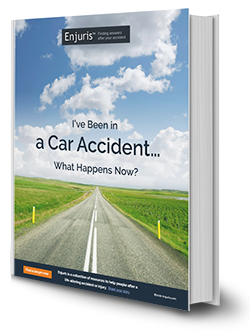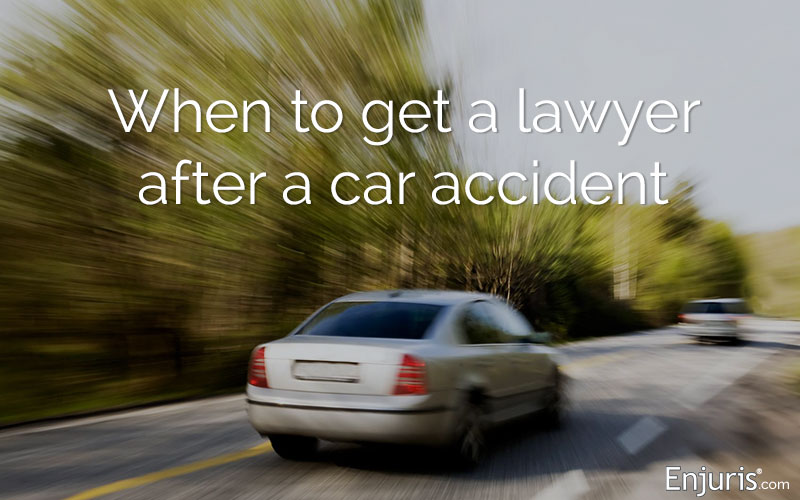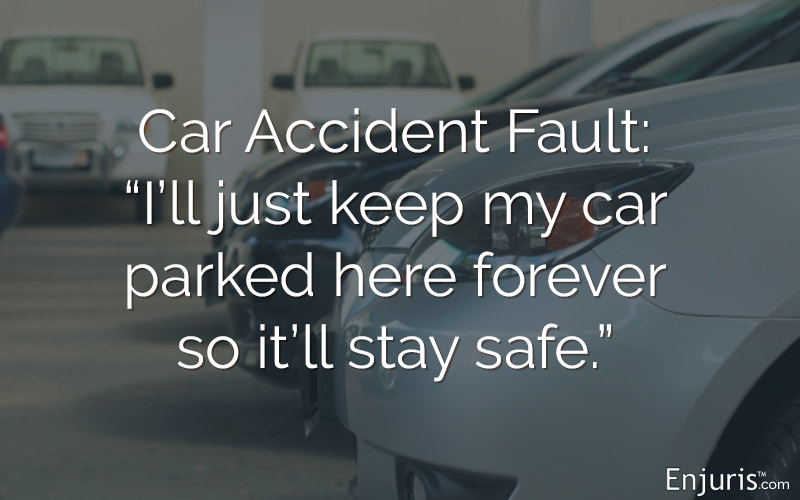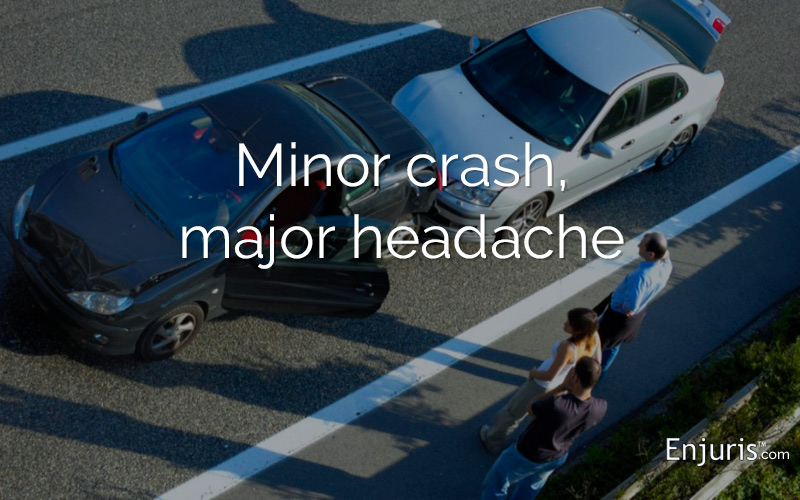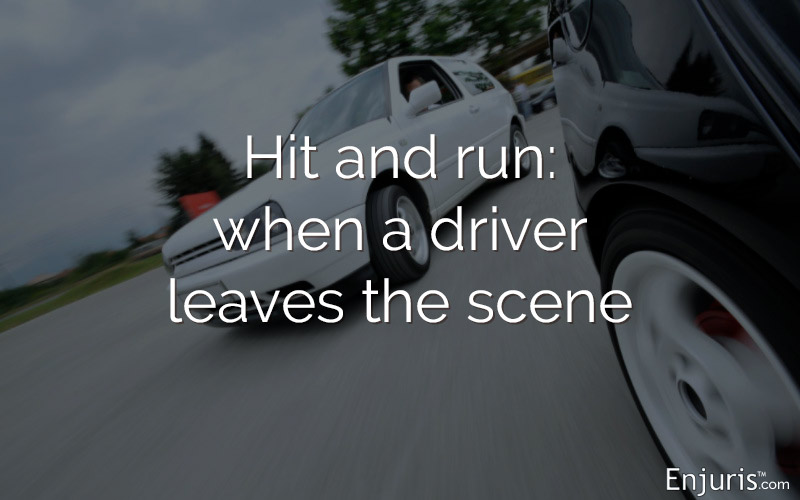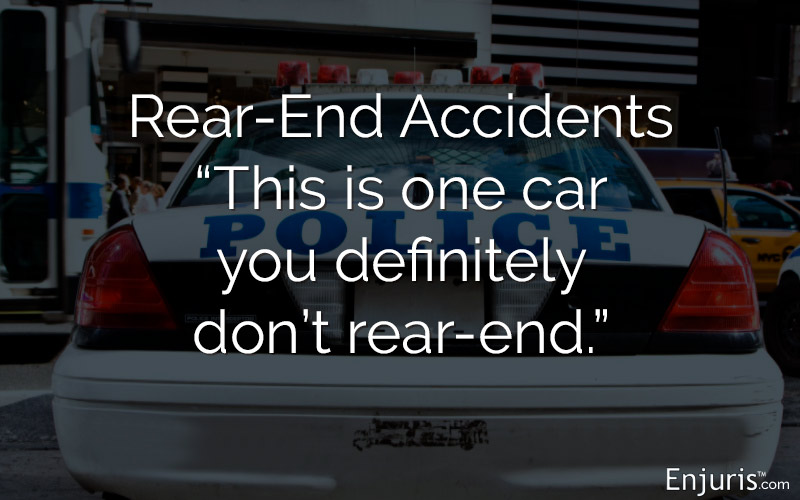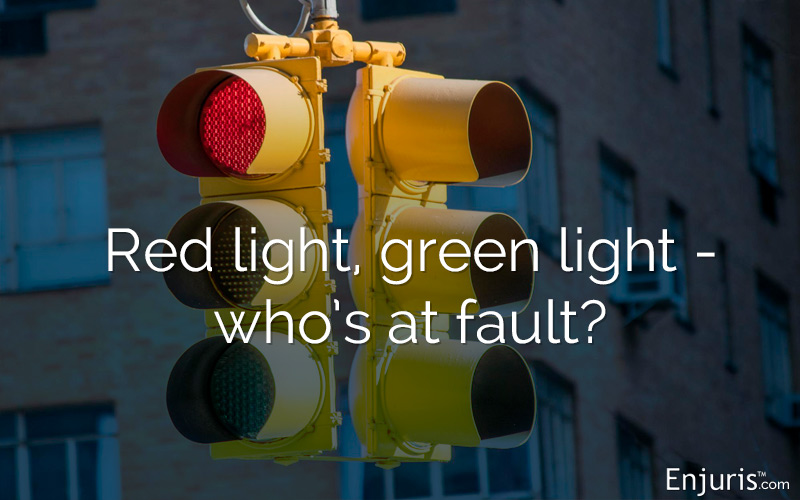Find out if you have a case and access the latest info, resources and data
Car accidents are all too common in Florida.
Everybody always hopes car accidents will happen to other people – until they happen to you.
There are more than 200,000 car crashes in Florida annually among the 16 million-plus drivers in the state, and in 2015, there were 2,699 fatal crashes. Since Florida's insurance requirements are some of the lowest in the country, you will want to plan ahead and prepare before you drive those roads.
This article will cover how to protect yourself in the event of a car accident in Florida, how to handle it most efficiently and how the state's internal quirks are different from the rest of the country.
Deal with the immediate issues
The most important thing in any car accident is to make sure you're physically sound.
Question one: Are you hurt?
Question two: Are your passengers hurt?
Question three: Is the car on fire?
Once you've dealt with those imperative questions, you can move on to the nitty-gritty details.
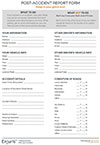 Accident Report Form
Accident Report Form
Sample post-accident report form to keep in your glove box - fill out at the scene or as soon as you can after a car accident
Download in PDF format![]()
- Call the police: Unless there was absolutely no damage (and even if you can’t see it, sometimes there is), call the authorities. Their account will become the official record, and your insurance company will need that. Move your cars to the side of the road to maintain the flow of traffic; if they are too damaged to be moved, turn on the hazard lights and wait until police arrive.
- Exchange information: Don’t say more than your name and your insurance information to the other party, because anything you say can be used against you later. Make sure to get his or her name, contact information, insurance information, license plate, car make and model, and driver’s license number.
- Get witness information: This is absolutely crucial, because witnesses often leave the state and are impossible to track down. Write down their names and contact information for later.
- Photograph the scene and injuries: Your attorney will thank you. Injuries heal faster than you think, and the cops might not take as many photos as you need. Use your phone and take pictures of the cars, license plates, bruises, cuts and whatever else is relevant.
 Post-Accident Journal Form
Post-Accident Journal Form
Sample accident journal/diary to help you document the effect on your daily life
Download in PDF format
- Receive medical attention: Make sure to follow up with your doctor and have your injuries documented. This is very important, even if you don't think you're hurt. It might take a few days for your injuries to manifest, and by then your insurance company won't connect it to the accident because of the gap in between.
- Contact your insurance company: Start this process as soon as possible and keep all your documents in one place. It helps to use a post-accident journal or expense worksheet.
- Talk to an attorney: Even if you're not sure about a lawsuit, a lawyer who deals with car accidents can help you decide how to proceed.
So how does Florida's car insurance system work?
Florida is a no-fault state when it comes to car insurance. This means that in the event of a car accident, each car turns to its own insurer to cover any medical bills instead of suing the other driver. At-fault states, on the other hand, would sue to cover medical costs related to the accident.
This means that no matter who is hurt – the person driving, the passenger, someone walking on the sidewalk who is sideswiped by an SUV – they all turn to their own car insurance policies first.
If someone is uninsured, he or she turns to the policy of the closest insured relative. See what to do if it’s a hit and run.
 Damages/Expenses Worksheet
Damages/Expenses Worksheet
Damages worksheet to track expenses for your injury claim (medical treatment, property damage, lost wages, prescriptions)
Download in PDF format![]()
Florida requires drivers to carry a $10,000 PIP (personal injury protection) policy. This blanket coverage is intended to protect drivers in case of small accidents. If your medical costs outweigh your car insurance coverage limits, you can:
- Pay out of pocket
- Turn to your medical insurance coverage
- Pursue a lawsuit if someone else negligently caused the accident and if the injuries exceed a certain threshold
No-fault systems are intended to destress the courts. Insurance companies can handle small claims like a broken nose or arm, and by streamlining these claims instead of clogging up the legal system, the intention is to get claims paid out faster. For catastrophic or permanent injuries, however, drivers can still sue for damages.
Despite the statistics, many drivers are chancing it by driving with very little insurance – or no insurance at all. This is the case even though Florida requires PIP insurance and PDL insurance (property damage liability insurance), which applies if you cause damage to property.
In these instances, it helps to have underinsurance or uninsurance policies, which cover you in the event when you're hit by someone who isn't driving with insurance. Florida is notorious for having drivers hit the road without policies, even though it's illegal. As of 2012, 23.8% of Florida drivers were uninsured. That is more than one out of every five drivers. Pretty risky, don't you think?
Underinsurance policies cover the medical bills that wouldn't be covered by PIP or the other driver's insurance. Let's say you were hit and suffered a catastrophic injury that allowed you to step outside Florida's no-fault system and sue the other driver. They would have no money for you to claim. An uninsurance policy lets you claim damages against your own insurance company instead so that you won't suffer needlessly.
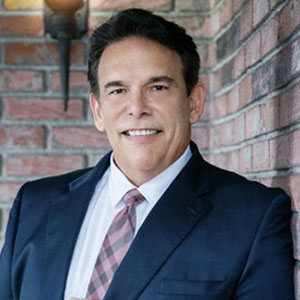
Some car accidents are minor and straightforward affairs that can be quickly resolved by each party and their insurance company. However, many cases involve complicating factors such as serious property damage, catastrophic injuries or an uninsured/unlicensed driver.
When there's a speed bump in getting compensation you feel you deserve following a crash, it's in your best interests to talk to an attorney. Most reputable firms offer a free consultation, so it costs you nothing but your time to learn about your rights.
- Attorney George Lorenzo, Lorenzo & Lorenzo
Comparative negligence/fault system in Florida
It's important to note that “fault” and “negligence” are used interchangeably. Just know that negligence is when someone is legally liable for causing harm to another person. The plaintiff (the person who was harmed) must prove four elements:
The plaintiff has to illustrate that the defendant owed him or her a duty of care;
The defendant breached that duty by acting or not acting a certain way;
The defendant's action or inaction caused the plaintiff's injury;
The plaintiff was actually harmed by the defendant's action or inaction.
This is the basis of every personal injury claim. In Florida, we follow the “pure comparative negligence” system, which apportions damages between parties based on the percentage of fault. So, a victim can recover damages even if he is 99% at fault for an accident.
What if I need to go to trial in Florida?
The trial process is fairly straightforward. Plaintiffs have four years to file a motor vehicle claim, which is a generous statute of limitations. This gives them a lot of time to heal, gather information related to the accident and find an attorney they like.
- Engage an attorney: Interview a few different ones before you lock one down. Make sure to discuss fee arrangements and the entire process, because every lawyer is different.
- Begin the initial paperwork: The attorney will draft the demand letter and serve it on the defendant, which will let him or her know that you intend to file a claim.
- The defendant will answer the demand, which starts the discovery process and settlement negotiations. This can take months or even years because you will be digging up facts, taking depositions, interviewing witnesses, and waiting for you to achieve maximum medical improvement – or the point at which you will no longer heal.
- If you cannot reach a settlement, you will go to trial. Motions and arguments will be made in front of a judge, or the judge might compel you to try alternative dispute resolution such as mediation or arbitration.
- The jury will either award the plaintiff or deny compensation, which might result in an appeal.
Read our complete guide to finding the right injury attorney for your case. Read insights from Enjuris attorneys and lawyers across the USA on when and why you need to hire a car accident attorney. Learn more
Best motor vehicle and personal injury resources in Florida
Once you've been in an accident, it helps to know that there are other people out there like you who have been through the same thing. Car accidents are scary. They can be life-changing events, and sometimes those who haven't been through them don't understand just how immense of an experience they are. Here are some resources we've collected for you regarding motor vehicle safety, driving education, mental health, physical health and wellness in general.
- Florida Highway Safety and Motor Vehicles: the FLHSMV has all the data, statistics and information regarding driving safety, “arriving alive,” consumer education, handbooks, manuals, and related links to help you find more resources.
- Florida Highway Safety and Motor Vehicles: Vehicle Insurance Q&A: This is a subset of the FLHSMV. The vehicle insurance Q&A shows you Florida's insurance requirements and what you need to get your car ready for the road.
- National Highway Traffic Safety Administration: Need information about drunk driving? This has everything you could need to turn your car into the safest vehicle on the road.
- Insurance Institute for Highway Safety: The IIHS has information ranging from rollover crashes to older drivers to red light running. They also have consumer safety videos, such as “Understanding Car Crashes: It's Basic Physics,” and Young Drivers: The High Risk Years.”
- Florida DUI and Administrative Suspension Laws: This page was made by the Department of Highway Safety and Motor Vehicles, and it has every relevant law about driving under the influence. If you need the technical language for any reason, this is the place to go – for reference only, of course. Refer to the actual statutes for court.
- Florida DUI School: This is where you can sign up for DUI classes if you got ticketed by the cops. At least it's convenient!
- B4UDrink Educator: This is a website called the Virtual Bar. Now you can see how different drinks affect your blood alcohol content – without the hangover! This app simulates how various drinks would theoretically change your BAC. It's not meant to be scientifically accurate, but it can get pretty close.
- Ride Smart Florida: Ride Smart Florida was created by the Florida Department of Transportation and is the outreach arm of the Florida Motorcycle Safety Coalition. We can't forget about motorcycles, because they are a large number of vehicles on the road and many people use them. The aim of Ride Smart Florida is to reduce fatalities and serious injuries to motorcycle riders and passengers. The website offers education, training, data, statistics and support to local communities.
- Florida Motorcycle License: Need a Florida motorcycle license? Look no further, friend.
- Florida Rider Training Program: You can't enjoy those scenic motorcycle roads until you know how to ride a bike. This website signs you up for a motorcycle training course and allows you to locate a facility near you so that you can enhance your safety skills.
- Coping with Injury: This is MADD's PDF pamphlet that offers information for recovering physically and mentally from an accident.
- Coping with Unexpected Events: The Depression and Bipolar Support Alliance knows that depression is common after a traumatic accident, and that you shouldn't suffer alone. The DBSA provides ways to help yourself and others cope with depression after an accident.
- Getting Help for PTSD: Post-traumatic stress disorder is common after an accident, even a slight one. The PTSD Alliance offers hotlines and other ways to receive help if you are experience PTSD.
- Trauma Survivors Network: This is a platform for those who have survived trauma to share their stories and offer support.
- Mental Health America: This is a tool to find mental health providers in your area.
- Accidental Impacts – Coping: This is for when you have caused the accident, which is never easy to deal with. Accidental Impacts offers help and support for those who have caused impacts and shares stories of those who have been in the same unfortunate situation.
- Moving Beyond Guilt: While the Phoenix Society is for burn victims, this offers valuable advice for those suffering from survivor's guilt and offers help for people needing to move beyond their own pain.
- EmpowHER: This also deals with survivor's guilt and gives advice for clarity and peace of mind.
We hope these resources give you some peace of mind and let you sleep a little more comfortably. In the meantime, if you need to speak with an attorney, try the Enjuris Florida law firm partner!
- Blood Alcohol Content and the Law in Florida
- Distracted Driving Accidents in Florida
- Florida DUI Laws, Penalties & Damages After an Accident
- Hit and Run Accidents in Florida
- Minimum Insurance Requirements for Florida Drivers
- Rear-End Collision in Florida
- Rideshare Accident Laws in Florida
- Taxi, Bus and Truck Driver Injuries in Florida
- Uninsured/Underinsured Motorist Accidents in Florida
- What To Do If You’re Injured in a Florida Bus Accident
Did you know that car accident law varies by state?
Hurt in a car crash? You may find these resources helpful
Need a lawyer?
What does an injury lawyer do?
A personal injury lawyer helps individuals who have sustained injuries in accidents to recover financial compensation. These funds are often needed to pay for medical treatment, make up for lost wages and provide compensation for injuries suffered. Sometimes a case that seems simple at first may become more complicated. In these cases, consider hiring an experienced personal injury lawyer. Read more
Common car accidents
